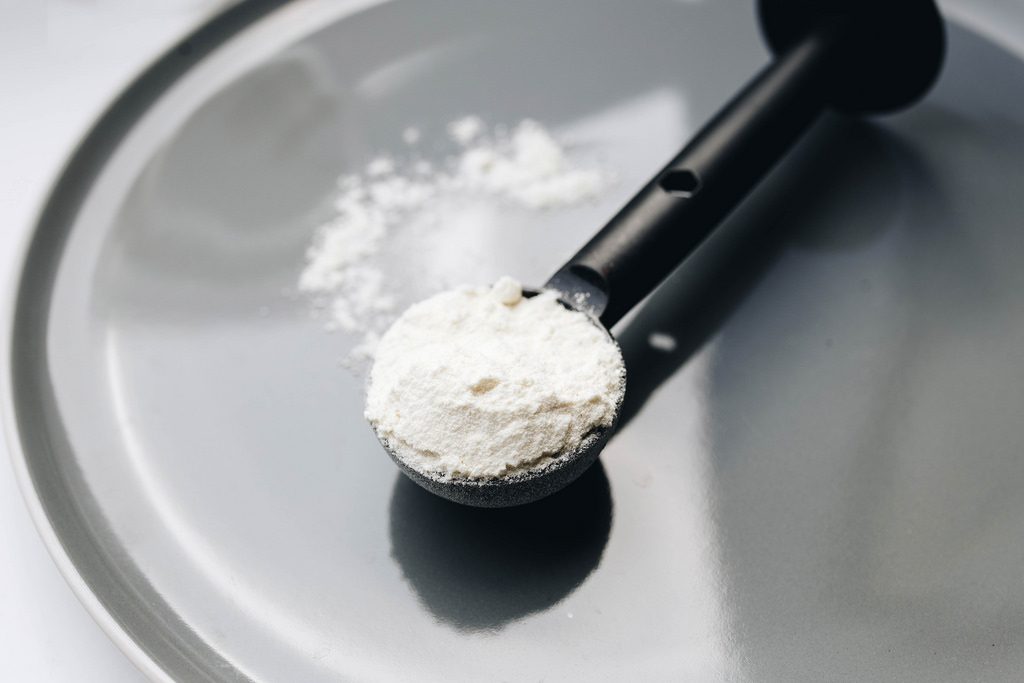The increasing popularity of whey protein for athletes is largely a financial strategy from dairy farmers. Not only is protein powder consumption unnecessary and expensive, it may come at a cost to your health. It wasn’t until the early 2000s that whey protein powder became popular. But why?

Whey powder in a measuring spoon. (Photo uploader: https://www.flickr.com/photos/30478819@N08/30934111318)
History of Whey
Prior to the invention of whey protein powder, dairy farmers had a huge problem. When producing cheese, only about 20% of the milk turns into cheese while the other 80% is whey by-product. Dairy farmers tried to dump the whey into streams, but this was extremely detrimental to the environment. As a result, governmental agencies implemented laws and regulations preventing farmers from doing this. Farmers also tried to use the whey as feed but unfortunately it was not a healthy diet for their cattle.
Still in need of a solution, farmers turned to the knowledge of scientists. The scientists realized that it was high in essential dietary proteins. They created a way to process the whey and turn it into a dietary protein supplement. After investing millions of dollars in marketing, the worldwide whey protein market value was estimated at $9.4 billion in 2017.
What’s the Problem?
According to Canadian statistics, nearly 100% of Canadians consume an acceptable amount of protein. Consuming more protein than necessary is not recommended. Studies show that consistently consuming too much protein can result in nausea, weakness, diarrhea, obesity and even death. Other studies have shown a correlation between high protein intake and osteoporosis, kidney stones, cancer, and heart disease.
About 65% of adults have difficulty digesting lactose, which is present in high quantities in whey. Therefore, after consuming whey it is very common to become bloated. Whey protein also causes a spike insulin (a hormone involved in controlling a cells energy), which shuts down the burning of fat in the body. Whey has been shown to have a more dramatic effect on insulin levels than pure glucose. Thus, it is not uncommon to become obese if you’re consuming whey protein powder.
Another major concern about whey protein powder is lack of regulation. Protein powder falls under the category of dietary supplement, so it is not regulated by the FDA. That means it is up to the company to be honest and accurate with their labels. An organization called the Clean Label Project “…uses data and science to revel the true contents of America’s best-selling consumer products”. In many cases, the Clean Label Project has found unsafe levels of mercury, arsenic, cadmium, lead, BPA and BPS (chemicals used in production of plastics) and other toxins.
Should I Stop Using Whey?
If you’re not protein deficient, which you probably aren’t, then the only time protein supplements could potentially be beneficial are after intense exercise. Plant based protein powder may be a better option for many people because it is easier for your body to digest. In the end, time and dedication is what will grow muscle, not protein powder.
Nick di Lello
